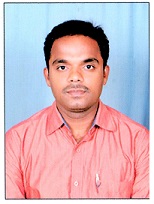
PHD
Associate Professor
School of Forensic Sciences
Department: NA
Phone: 9866898857
Email: [email protected]
About Me |
|---|
2014-Ph.D (Life Sciences) from Central Forensic Science Laboratory, Govt. of India, Kolkata Affiliated to Jadavpur University, Kolkata, PG (Biotechnology) From Bharathidasan University, Tamilnadu-2006, UG (Biotechnology) from Andhra University, Andhra Pradesh-2004. 04 Years Teaching Experience in the field of Life Sciences 05 Years Research Experience in the field of Forensic Science 06 Years Technical and Administration Experience 10-Paper Publications in International publishers like Nature, Elsevier, Springer, American Academy, Wiley (Highest IP:9.65 and Lowest IP: 1.25) 01-Indian Patent 02-Technologies developed in the field of Wild Life Forensic Biology
|
Research Fields
Teaching
Expertise
Interests
Research Fields

